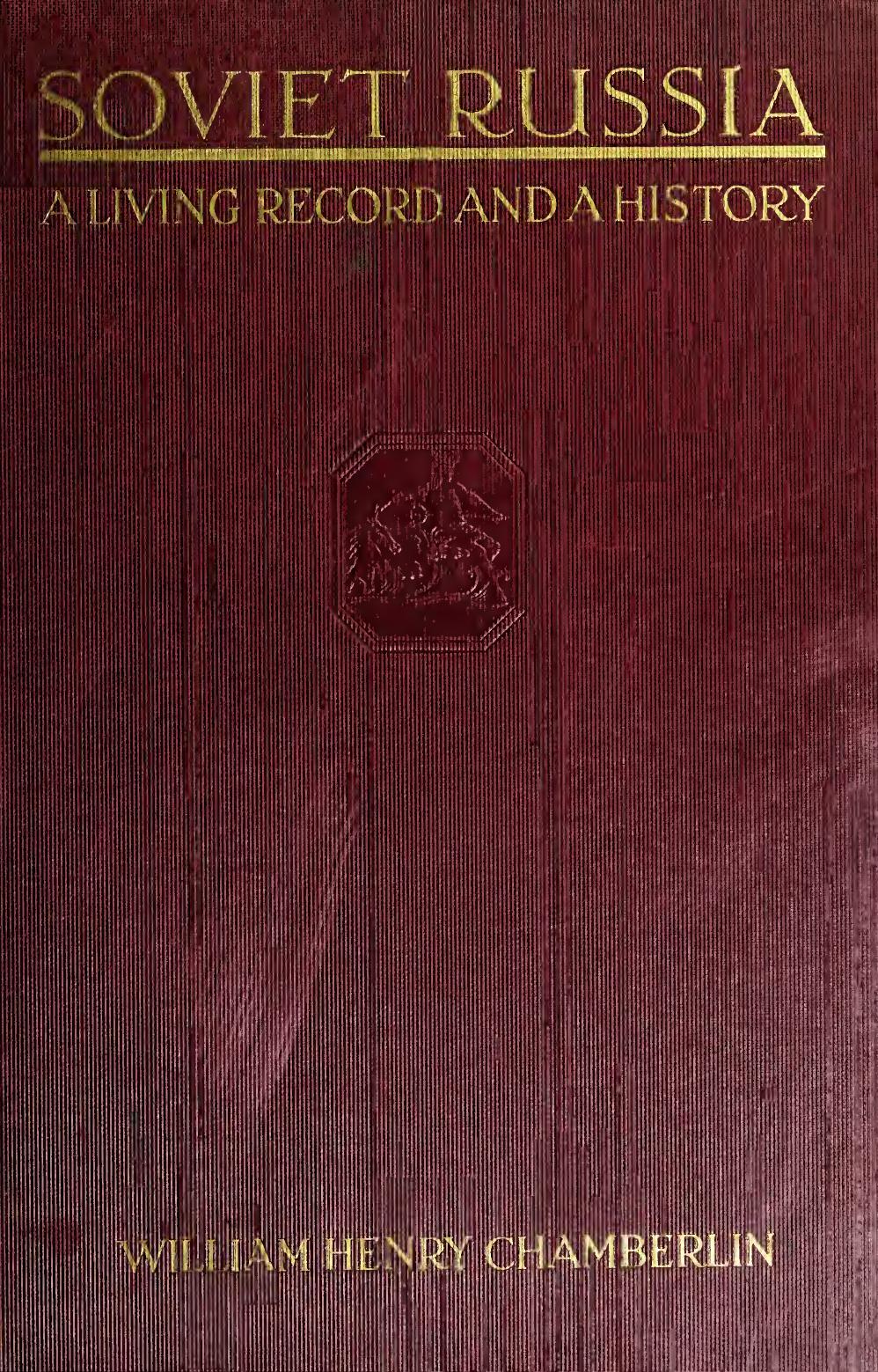
Soviet Russia: A Living Record and a History PDF
1929·19.0203 MB·other
Most books are stored in the elastic cloud where traffic is expensive. For this reason, we have a limit on daily download.
Preview Soviet Russia: A Living Record and a History
Description:
William Henry Chamberlin
(1897 - 1969) was an American historian and journalist. He was the
author of several books about the Cold War, Communism and US foreign
policy, the most famous of which was The Russian Revolution 1917-1921
(1935). Chamberlin wrote the book whilst stationed in Russia between
1922-34 as the Moscow correspondent of The Christian Science Monitor.
https://www.marxists.org/archive/chamberlin-william/1929/soviet-russia/index.htm
SOVIET RUSSIA to-day is a tempting and difficult field for the foreign observer. The new Soviet social order, with its multiplicity of changes, political and economic, intellectual and moral, fairly challenges interpretation and analysis. At the same time, Russia's past isolation from many main currents of European historical and cultural development, the novel and unprecedented characteristics of the Soviet state, the new standards and values which the Revolution has brought, are all formidable obstacles in the way of formulating an unbiased and realistic judgment of the country's present condition and future prospects of development.
In preparing this book, which is the product of seven years' residence in Russia in the capacity of a journalist, I have tried to combine an impartial analysis of what has happened in Russia with an attitude of open-minded curiosity as to what may lie in the future. The French philosopher Remy de Gourmont once recommended the ideal of "seeing the six sides of the cube." Probably the cube represented by the Russian Revolution has more than six sides, and I am far from confident that I have seen all of them in accurate perspective. But I think I may maintain that such mistakes as time will doubtless reveal in my interpretation of the Soviet Union are without bias aforethought and are not the result of some preconceived dogmatic view of a movement which is still too young and too fluid to fit into any hard-and-fast classification.
https://www.marxists.org/archive/chamberlin-william/1929/soviet-russia/index.htm
SOVIET RUSSIA to-day is a tempting and difficult field for the foreign observer. The new Soviet social order, with its multiplicity of changes, political and economic, intellectual and moral, fairly challenges interpretation and analysis. At the same time, Russia's past isolation from many main currents of European historical and cultural development, the novel and unprecedented characteristics of the Soviet state, the new standards and values which the Revolution has brought, are all formidable obstacles in the way of formulating an unbiased and realistic judgment of the country's present condition and future prospects of development.
In preparing this book, which is the product of seven years' residence in Russia in the capacity of a journalist, I have tried to combine an impartial analysis of what has happened in Russia with an attitude of open-minded curiosity as to what may lie in the future. The French philosopher Remy de Gourmont once recommended the ideal of "seeing the six sides of the cube." Probably the cube represented by the Russian Revolution has more than six sides, and I am far from confident that I have seen all of them in accurate perspective. But I think I may maintain that such mistakes as time will doubtless reveal in my interpretation of the Soviet Union are without bias aforethought and are not the result of some preconceived dogmatic view of a movement which is still too young and too fluid to fit into any hard-and-fast classification.
See more
The list of books you might like
Most books are stored in the elastic cloud where traffic is expensive. For this reason, we have a limit on daily download.
